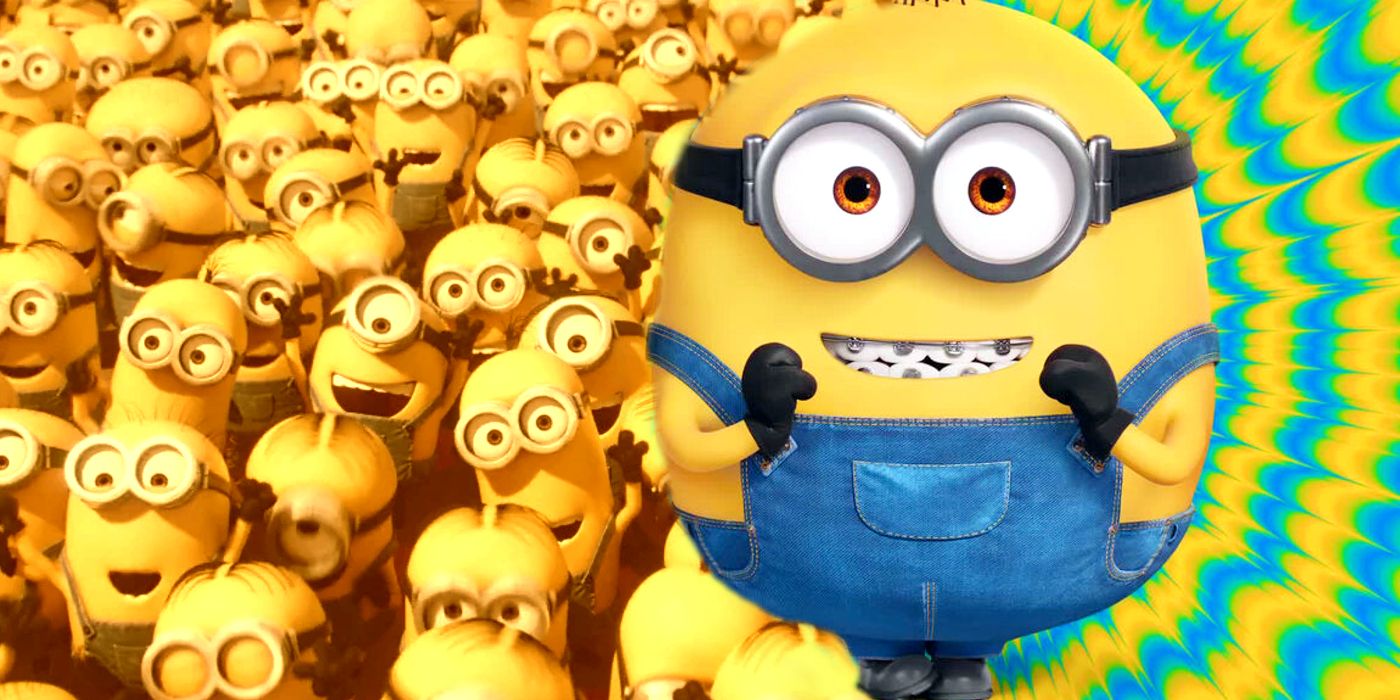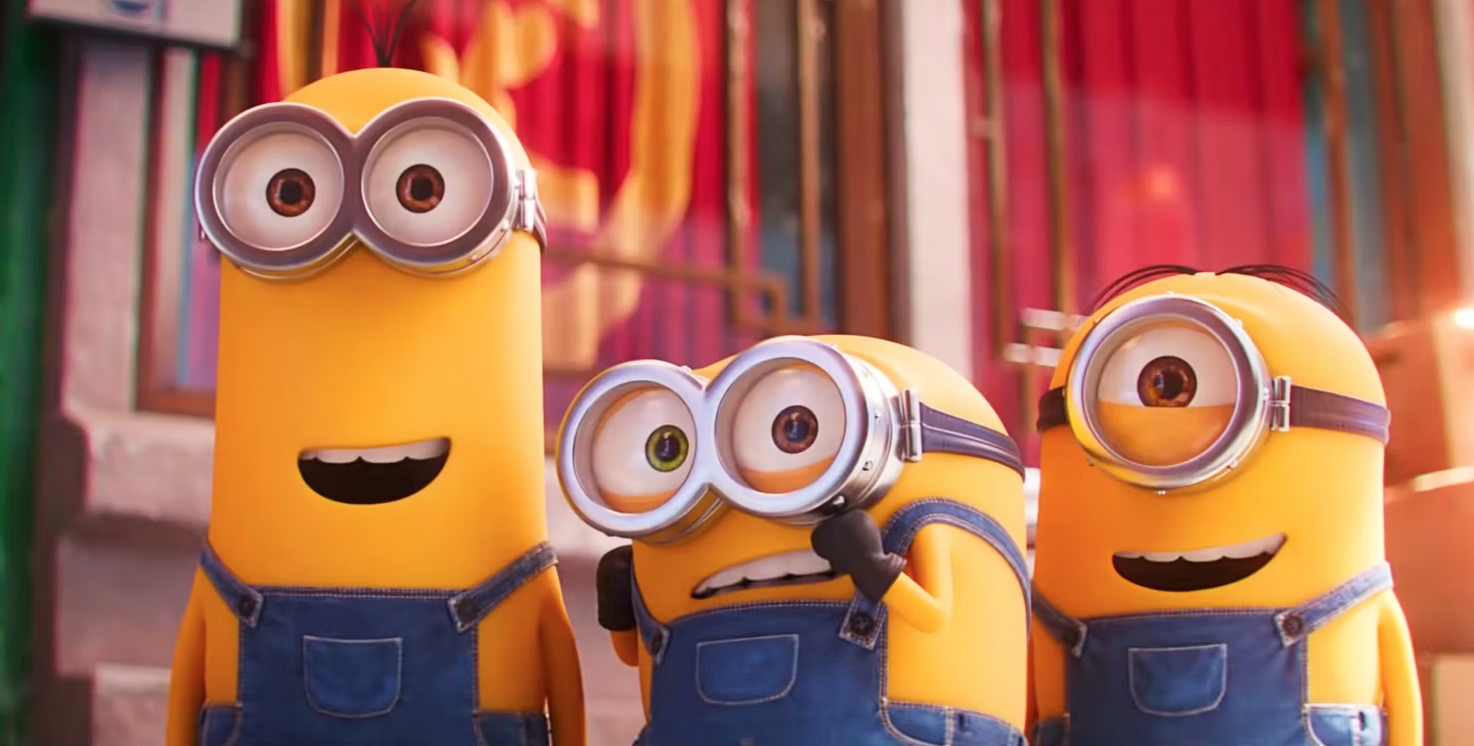Ever wondered who’s behind those squeaky, adorable voices that make your heart melt? Yeah, we’re talking about the Minions—the little yellow troublemakers who’ve taken over our hearts and screens. These pint-sized creatures have become a global phenomenon, and their charm lies not just in their quirky antics but also in those super-cute voices that somehow sound like a mix of gibberish and pure joy. But have you ever stopped to think, “Who ARE these voices?” Let’s dive deep into the untold story behind the beloved Minions.
Now, you might be thinking, “Why should I care about the voices behind Minions?” Well, here’s the deal—understanding the people who bring these characters to life adds a whole new layer of appreciation. It’s not just about watching a movie or a short clip; it’s about knowing the hard work, creativity, and passion that go into making those sounds so irresistibly charming. So, buckle up because we’re about to take you on a journey you won’t forget.
Minions are more than just animated characters. They’re a cultural phenomenon that has sparked everything from merchandise to theme parks. And while their actions and expressions speak volumes, it’s their voices that truly bring them to life. But who exactly are the voices behind these lovable troublemakers? Let’s find out, shall we?
Read also:Raw Reds
The Origins of Minion Voices
Before we get into the nitty-gritty of who voices the Minions, let’s rewind a bit and talk about how these voices came to be. The creators of Minions, Pierre Coffin and Chris Renaud, wanted something unique—a language that was universal yet completely their own. Enter Minionese, the made-up language that sounds like a mix of Italian, Spanish, French, English, and a dash of randomness. But where do these voices come from? Let’s break it down:
- Pierre Coffin, the director of the Despicable Me series, is the main voice behind the Minions. Can you believe that? The guy who helms the entire production also lends his voice to these little yellow guys.
- Chris Renaud, another key figure in the franchise, contributes to the Minion voices as well. It’s like a tag-team effort to bring these characters to life.
- Other voice actors, like Steve Carell and Sandra Bullock, have also joined in on the fun, adding their own flair to the Minion chaos.
So, it’s not just one person—it’s a collaborative effort that makes the Minions so special. But let’s dig deeper into the main voices, shall we?
Pierre Coffin: The Man Behind the Madness
Pierre Coffin is the brains—and the voice—behind the Minions. As the director of the Despicable Me series, he had a clear vision for these characters. But what you might not know is that Coffin’s inspiration for the Minion voices came from his childhood. Growing up in France, he was fascinated by the sounds of different languages and how they could evoke emotions without needing words. This curiosity led him to create Minionese, a language that’s both playful and universal.
Here’s the kicker: Coffin doesn’t just voice one Minion—he voices ALL of them. Yes, you read that right. Every squeaky, gibberish-filled line you hear in the movies? That’s Coffin hard at work. And if you think that’s impressive, wait till you hear about his process.
A Day in the Life of Pierre Coffin
When Coffin records the Minion voices, he doesn’t just sit in a booth and start talking. He gets into character—literally. He’ll act out scenes, move around the studio, and even improvise to capture the essence of each Minion. It’s a labor of love, and it shows in every scene.
But Coffin’s contribution goes beyond just the voices. He’s also the one who decides which Minions get which lines, and how those lines should be delivered. It’s like being the conductor of an orchestra, except instead of instruments, you’ve got little yellow creatures.
Read also:Kemono Focusedrelaxation
Chris Renaud: The Co-Voice of Minions
While Pierre Coffin might be the main voice behind the Minions, Chris Renaud, the co-director of the Despicable Me series, also plays a crucial role. Renaud’s voice adds a layer of depth to the Minions, giving them a more varied sound. Think of it like a duet—Coffin and Renaud working together to create something truly magical.
Renaud’s approach to voicing the Minions is slightly different from Coffin’s. While Coffin focuses on the playful, mischievous side of the characters, Renaud brings out their more emotional and relatable traits. It’s this balance that makes the Minions so endearing.
How Chris Renaud Approaches the Minion Voices
Renaud’s process is all about understanding the characters. He spends time studying their personalities, their quirks, and their motivations. This deep understanding allows him to deliver lines that feel authentic and true to the Minions’ nature. And like Coffin, Renaud isn’t afraid to get a little crazy in the recording studio. If a scene calls for a Minion to be angry, you better believe Renaud will channel that energy.
Other Voices in the Mix
While Coffin and Renaud are the main voices behind the Minions, they’re not the only ones who’ve lent their talents to the franchise. Other voice actors, like Steve Carell and Sandra Bullock, have also contributed to the Minion universe. Carell, who voices Gru, often interacts with the Minions in hilarious ways, while Bullock brings her own unique energy to the mix.
But it’s not just big-name actors who get to play with the Minions. The franchise has also featured voice contributions from lesser-known actors and even some unexpected sources. For example, did you know that some of the Minion lines were improvised on set? It’s true! The creators encourage creativity and spontaneity, which is part of what makes the Minions so special.
The Importance of Collaboration
Collaboration is key when it comes to voicing the Minions. It’s not just about one person or one voice—it’s about creating a harmonious blend that captures the essence of these characters. And while Coffin and Renaud are the main voices, the input from other actors and creators adds a richness and depth that wouldn’t be possible otherwise.
The Language of Minions: Minionese
Now that we’ve talked about the voices behind the Minions, let’s dive into the language they speak: Minionese. Minionese is a made-up language that sounds like a mix of Italian, Spanish, French, English, and a dash of randomness. But it’s not just random gibberish—there’s a method to the madness. Each word in Minionese has a meaning, even if it’s not immediately obvious.
For example, the word “banana” in Minionese actually means “banana.” And the word “poulet tikka masala” means… well, you get the idea. Minionese is a language of playful ambiguity, and it’s part of what makes the Minions so charming.
How Minionese Was Created
Pierre Coffin is the mastermind behind Minionese. He drew inspiration from his travels and his love of languages to create a language that’s both fun and functional. The key to Minionese is its universal appeal—it’s a language that anyone can understand, regardless of where they’re from. And while it might sound like nonsense, there’s a lot of thought and care that goes into each line.
The Evolution of Minion Voices
Over the years, the Minion voices have evolved to keep up with the changing demands of the franchise. In the early days, Coffin and Renaud were the only voices behind the Minions. But as the franchise grew, so did the need for more voices and more variety. This led to the inclusion of other actors and creators, each bringing their own unique style to the table.
But the core of the Minion voices remains the same: a blend of playful gibberish and heartfelt emotion. And while the voices may have changed over time, the charm and charisma of the Minions have only grown stronger.
The Future of Minion Voices
With new movies and projects on the horizon, the future of Minion voices looks bright. Coffin and Renaud are still at the helm, but they’re also welcoming new voices and ideas into the fold. This ensures that the Minions remain fresh and relevant, while still staying true to their roots.
Why the Minions Resonate with Audiences
So, why do the Minions resonate so deeply with audiences? It’s not just about the voices or the language—it’s about the characters themselves. Minions are relatable, lovable, and endlessly entertaining. They remind us of the joy of childhood, the power of friendship, and the importance of staying true to ourselves.
And let’s not forget the universal appeal of Minionese. Whether you’re from Italy, Spain, France, or anywhere else, you can understand and enjoy the Minions. It’s a language that transcends borders and brings people together.
The Emotional Connection
At their core, the Minions are about emotion. They may speak in a made-up language, but their actions and expressions speak volumes. Whether they’re helping Gru with his evil schemes or just causing chaos, the Minions always manage to tug at our heartstrings. And that’s the magic of these little yellow creatures—they make us laugh, they make us cry, and they make us feel.
Conclusion
So, there you have it—the untold story behind the voices of Minions. From Pierre Coffin’s genius creation of Minionese to the collaborative efforts of Coffin and Renaud, the Minions are more than just animated characters. They’re a testament to the power of creativity, collaboration, and hard work.
And while the voices behind the Minions may be the unsung heroes of the franchise, they’re the ones who truly bring these characters to life. So, the next time you watch a Minion movie or hear one of their iconic lines, take a moment to appreciate the talent and effort that goes into making them so lovable.
Now, it’s your turn! Let us know in the comments which Minion voice is your favorite, or share your own Minionese words with us. And don’t forget to check out our other articles for more fun and insightful content. Until next time, stay Minion-tastic!
Table of Contents
- The Origins of Minion Voices
- Pierre Coffin: The Man Behind the Madness
- A Day in the Life of Pierre Coffin
- Chris Renaud: The Co-Voice of Minions
- How Chris Renaud Approaches the Minion Voices
- Other Voices in the Mix
- The Importance of Collaboration
- The Language of Minions: Minionese
- How Minionese Was Created
- The Evolution of Minion Voices
- The Future of Minion Voices
- Why the Minions Resonate with Audiences
- The Emotional Connection


